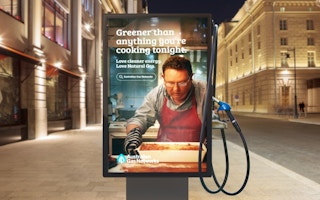Sydney, one of Australia’s richest and most populous cities, could become the first major urban centre in Asia Pacific to ban fossil fuels advertising from public spaces.
To continue reading, subscribe to Eco‑Business.
There's something for everyone. We offer a range of subscription plans.
- Access our stories and receive our Insights Weekly newsletter with the free EB Member plan.
- Unlock unlimited access to our content and archive with EB Circle.
- Publish your content with EB Premium.
The city’s deputy lord mayor Jess Scully will propose a motion at Monday’s council meeting to request an investigation into banning fossil fuel advertisements and sponsorship deals, the country’s national broadcaster ABC is reporting.
Scully compared the health effects of fossil fuels to smoking, and is calling for a ban of fossil fuel advertisements on council-run property.
The motion also calls on the Sydney council to push for state and federal governments to restrict fossil fuel advertising in the same way that a country-wide ban on tobacco advertising was introduced in 1992.
A ban would go one step further than mandating public health warnings on fossil fuel brand advertising, which has been proposed by legal and medical professionals in other countries.
“Air pollution from burning fossil fuels takes 8.7 million lives prematurely each year – worse than tobacco,” stated Scully in the motion.
You can’t reach net zero emissions while allowing your public spaces to advertise fossil fuels.
Belinda Noble, founder, Comms Declare
The deputy lord mayor said the influence wielded by Australia’s powerful fossil fuel companies had contributed to Australia’s lack of action on climate change.
Australia is one of the world’s largest exporters of fossil fuels and home to huge fossil fuel brands, such as Santos, Origin, Ampol, AGL and Energy Australia, which spend an estimated A$238 million (US$164 million) a year on advertising.
Australian policies to tackle climate change were rated among the weakest in the developed world until an election in May saw a new Labor government introduce bolder commitments to the Paris climate accord to reduce fossil fuel dependence.
A ban on outdoor advertising in Sydney would be a big win for a movement to remove fossil fuel advertising from public spaces in Australia. Non-profit Comms Declare launched a campaign to ban dirty energy ads with support from healthcare professionals last month.
“Australia was a world leader in stopping tobacco advertising and sponsorships and now we are poised to become leaders in curtailing the promotion of toxic, high emissions fossil fuels,” said Comms Declare founder, Belinda Noble.
“These promotions increase demand for damaging products, and create misinformation and greenwashing that is delaying climate action,” she said.
Sydney would become the second big city in the world to ban fossil fuel advertising, after Amsterdam, and the second city to stop fossil fuel brands from sponsoring events, after English city Norwich.
“Our message to other cities is that you can’t reach net zero emissions while allowing your public spaces to advertise fossil fuels, and I hope other governments follow Sydney’s lead and factor advertised emissions in their climate plans. If Sydney can ban fossil fuel promotions, anyone can,” she told Eco-Business.
Push back
Mike Spirkovski, the former chief creative officer of advertising agency Saatchi & Saatchi Australia, who recently founded a creative agency for sustainability-focused clients, said that he doubted banning fossil fuel advertising would save lives or reduce emissions.
“Just like many years ago when banning tobacco advertising did not really stop people smoking en masse. It would be smarter to promote the good these brands are doing for the betterment of carbon reduction – but it needs to be real and backed by action, not greenwashing and empty promises,” he told Eco-Business.
“I agree 100 per cent on not promoting any brand that is doing bad in any way, but I also want to know the good brands are doing and how they are changing for the better. Knowing change is happening inspires others to do the same and provides hope,” said Spirkovski.
“As someone who spent decades promoting these [carbon-intensive] companies, I know they are changing and doing what they can to be much more sustainable. Most of these business are legacy brands, where change does not happen overnight and at the pace we all want and need,” he said.
Restrictions on fossil fuel ads are being debated in the European Union, United States, Germany, Sweden and Canada as politicians debate how to curb carbon emissions.
Some media publications, including British newspaper The Guardian and trade title British Medical Journal, have stopped accepting fossil fuel advertising.








